In His last hours on earth, Jesus didn’t waste words. In John 14-16 (called Jesus’ “farewell discourse”), the Lord tells His disciples about the special coming and work of the Holy Spirit, and He urges them to pray, specifically to ask. Ten times, the Lord encourages us to ask. Ask the Father. Ask in His name. Ask for anything with three purposes in mind:
- That the Father may be glorified in the Son (John 14:12-14)
- That we may bear much and lasting fruit (John 15:7-8, 16)
- That our joy may be full (John 16:23-27)
Wait. What? Ask for our joy? Yep! Jesus urges us to ask that we may be filled with joy.
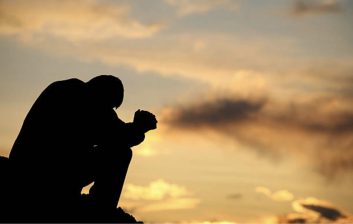 As we prepared to launch PPI in 2019, the Lord directed me to study John 14-17 and focus on asking Him in prayer. (This study later resulted in a sermon series at First Baptist – Bad Axe called ASK.) The Lord Jesus taught these three purposes to help us align our hearts then our requests with what matters for eternity.
As we prepared to launch PPI in 2019, the Lord directed me to study John 14-17 and focus on asking Him in prayer. (This study later resulted in a sermon series at First Baptist – Bad Axe called ASK.) The Lord Jesus taught these three purposes to help us align our hearts then our requests with what matters for eternity.
“Father, I’m asking for [this specific request] so You will be glorified and so I can bear much fruit, proving to be your disciple. And I’m asking for this because it would fill me with joy! I believe this is what Jesus would ask for so I’m coming to You in His name.”
What are you asking God for right now? Ask Him with these three purposes in mind. Our Savior told us to pray that way – for His glory and our joy!
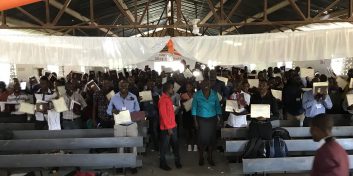 I often wish I somehow could capture the joy that pastors express on the last day of our training. It’s more than a sense of accomplishment – the dignity of earned success – though it includes that. It’s a Spirit-given joy of church leaders who have read and wrestled with God’s Truth in fellowship with other brothers and sisters in Christ. And it’s our joy as a ministry team as we gather pastors together to encourage them in Christ and point them to the life-giving, church-strengthening, community-changing Word of God.
I often wish I somehow could capture the joy that pastors express on the last day of our training. It’s more than a sense of accomplishment – the dignity of earned success – though it includes that. It’s a Spirit-given joy of church leaders who have read and wrestled with God’s Truth in fellowship with other brothers and sisters in Christ. And it’s our joy as a ministry team as we gather pastors together to encourage them in Christ and point them to the life-giving, church-strengthening, community-changing Word of God.
I trust it’s your joy, too, as you send us to the front lines to encourage and train pastors in Haiti! A young Haitian pastor said it well in his note to me last week:
Good evening my dear friend Pastor Ken. Hopefully everything is very great for you and your beautiful family. This is one of your friends from the conference in Quartier Morin. Be blessed, and we still don’t have words to describe our joys concerning the Bible Thompson. Thank you for your courage, and may God keep blessing you and the Team PPI. (Pastor Noel Héralès PNH)
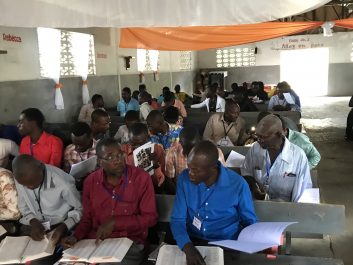 Trying to make a difference in people’s lives for Christ is an up and down road. At times people are eager to learn from and follow Jesus. At other times they’re distracted, even resistant. That’s why Paul urged his protégé, Timothy, to “proclaim the Word in season and out of season” (2 Timothy 4:2). Paul knew Timothy – and we – would experience “in season” times of great response to the Lord and “out of season” times of resistance and little fruit. So enjoy and make the most of times of fruitfulness, and press on through dry times, knowing that God is still at work.
Trying to make a difference in people’s lives for Christ is an up and down road. At times people are eager to learn from and follow Jesus. At other times they’re distracted, even resistant. That’s why Paul urged his protégé, Timothy, to “proclaim the Word in season and out of season” (2 Timothy 4:2). Paul knew Timothy – and we – would experience “in season” times of great response to the Lord and “out of season” times of resistance and little fruit. So enjoy and make the most of times of fruitfulness, and press on through dry times, knowing that God is still at work.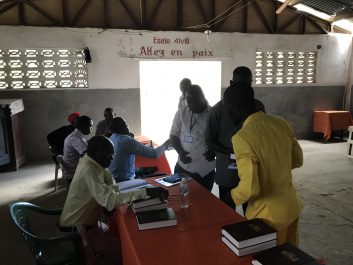
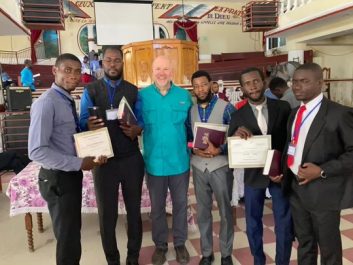 We conclude each PPI course with a special time of recognition and celebration. Church leaders are filled with joy and accomplishment. Each one who successly completes the course receives an official PPI certificate, ministry resources, and in Course 1, a Thompson Bible. As part of this closing time, we invite a few pastors to share their thoughts on how the course will help them, their church and their community. They consistently thank our team for coming to their city during these difficult times in Haiti, and express joy in learning to use the Thompson Bible for all aspects of their ministry.
We conclude each PPI course with a special time of recognition and celebration. Church leaders are filled with joy and accomplishment. Each one who successly completes the course receives an official PPI certificate, ministry resources, and in Course 1, a Thompson Bible. As part of this closing time, we invite a few pastors to share their thoughts on how the course will help them, their church and their community. They consistently thank our team for coming to their city during these difficult times in Haiti, and express joy in learning to use the Thompson Bible for all aspects of their ministry.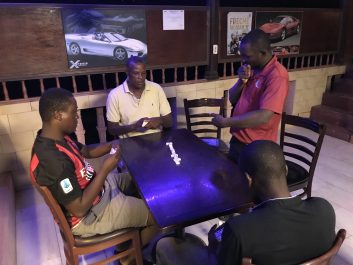 Our team typically works 10-12 each day of our training, from early morning to early evening. But we also enjoy eating together, conversations, laughter and, occasionally, a game. Our lodging in Limbé had a domino table on the patio so we decided to play. I think I learned dominoes from my mom and grandma. You sat quietly studying your pieces and placed them neatly on the table. In Haiti, dominoes is akin to dominos-meets-cage fighting, a raucus, fast-moving contest. Call it Haitian “power dominos.” Depending how the winner “fell” (went out), the loser had to stand from one to as many as eight games. (I stood for two games at one point to a lot of teasing and laughter.) The next night, Jasmin was chen an (“the dog”), standing for six games. Power dominoes was a fun way to relax with our Haitian team after full days of training church leaders.
Our team typically works 10-12 each day of our training, from early morning to early evening. But we also enjoy eating together, conversations, laughter and, occasionally, a game. Our lodging in Limbé had a domino table on the patio so we decided to play. I think I learned dominoes from my mom and grandma. You sat quietly studying your pieces and placed them neatly on the table. In Haiti, dominoes is akin to dominos-meets-cage fighting, a raucus, fast-moving contest. Call it Haitian “power dominos.” Depending how the winner “fell” (went out), the loser had to stand from one to as many as eight games. (I stood for two games at one point to a lot of teasing and laughter.) The next night, Jasmin was chen an (“the dog”), standing for six games. Power dominoes was a fun way to relax with our Haitian team after full days of training church leaders.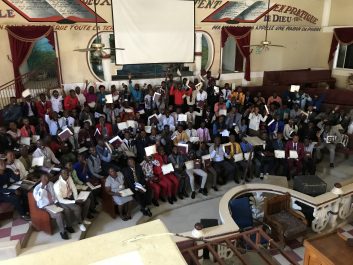
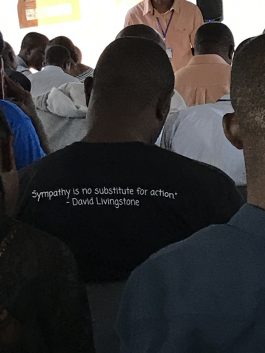
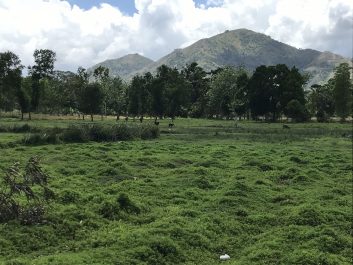
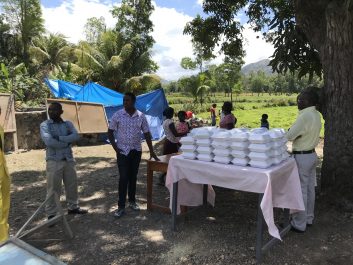
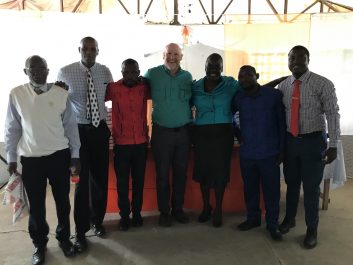
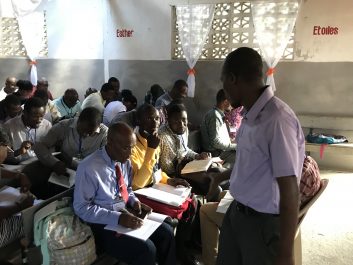
 We sometimes see things more clearly from a distance.
We sometimes see things more clearly from a distance.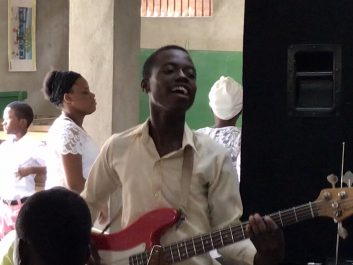 I once asked our Haitian team what makes the praise time so effective in their churches. They pointed to:
I once asked our Haitian team what makes the praise time so effective in their churches. They pointed to: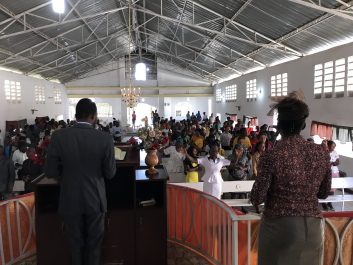 What praise and worship can and should accomplish in our gatherings has grown more clear for me. Jesus told us to worship God in Spirit and in truth (John 4:21-24). That is, to genuinely worship the Lord, we must be united with His Spirit (we belong to Christ) and aligned with His truth (we live according to His Word). When we worship God in this way:
What praise and worship can and should accomplish in our gatherings has grown more clear for me. Jesus told us to worship God in Spirit and in truth (John 4:21-24). That is, to genuinely worship the Lord, we must be united with His Spirit (we belong to Christ) and aligned with His truth (we live according to His Word). When we worship God in this way: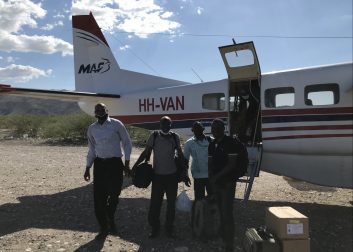 The day after I returned from Haiti in February, I received a letter from Missionary Aviation Fellowship (MAF). (As you know, we use MAF for in-country flights in Haiti – not to be confused with Missionary Flights International (MFI), which we use for shipping Bibles and training materials into Haiti from the USA.)
The day after I returned from Haiti in February, I received a letter from Missionary Aviation Fellowship (MAF). (As you know, we use MAF for in-country flights in Haiti – not to be confused with Missionary Flights International (MFI), which we use for shipping Bibles and training materials into Haiti from the USA.) 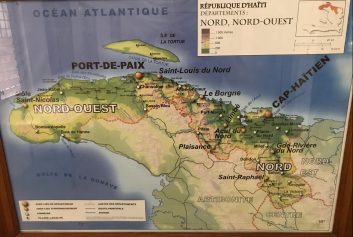 We had planned to offer Course 1 in two north coast areas, Port de Paix and La Tortue, next week, but had to change plans when MAF canceled our flights there. Our Haitian team believes the road is too dangerous for us to drive the seven hours from Cap-Haitien to Port de Paix (see map). So our team prayed, talked and decided to offer Course 1 in Cap-Haitien and Limbe, a town just west of Cap. Neither city requires MAF flights to get there safely.
We had planned to offer Course 1 in two north coast areas, Port de Paix and La Tortue, next week, but had to change plans when MAF canceled our flights there. Our Haitian team believes the road is too dangerous for us to drive the seven hours from Cap-Haitien to Port de Paix (see map). So our team prayed, talked and decided to offer Course 1 in Cap-Haitien and Limbe, a town just west of Cap. Neither city requires MAF flights to get there safely.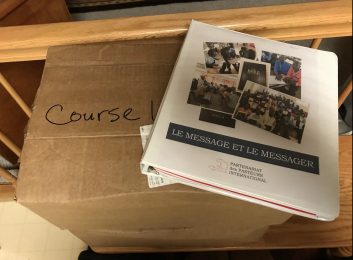 Speaking of Course 1
Speaking of Course 1 I smelled it before I saw it – hot transmission fluid. Rena and I had taken our Ford F150 to her parents’ house in Georgia. We enjoy our week in the spring with Dad and Mom Nadeja, typically a combination of yard/house projects, fun, conversation and, of course, eating out. This week was coming to an end, and we planned to leave in two days. That’s when I smelled the transmission fluid – and then I saw it. A steady stream across the driveway. Yikes! It was time to drop everything and get it fixed.
I smelled it before I saw it – hot transmission fluid. Rena and I had taken our Ford F150 to her parents’ house in Georgia. We enjoy our week in the spring with Dad and Mom Nadeja, typically a combination of yard/house projects, fun, conversation and, of course, eating out. This week was coming to an end, and we planned to leave in two days. That’s when I smelled the transmission fluid – and then I saw it. A steady stream across the driveway. Yikes! It was time to drop everything and get it fixed.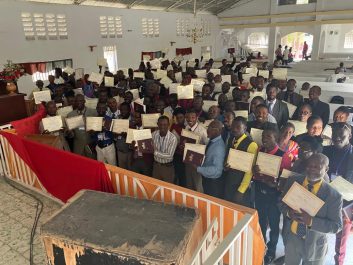 Mission leaders widely agree: Most pastors in poor nations have little to no biblical or practical training.
Mission leaders widely agree: Most pastors in poor nations have little to no biblical or practical training.  In Haiti, Bible colleges are closed right now because of the political and economic turmoil – some permanently.
In Haiti, Bible colleges are closed right now because of the political and economic turmoil – some permanently.  The Lord is giving us so many opportunities and open doors to encourage and train pastors! On average, I receive 2-3 messages a week inviting us – sometimes literally begging us – to come to their city, their country to train church leaders.
The Lord is giving us so many opportunities and open doors to encourage and train pastors! On average, I receive 2-3 messages a week inviting us – sometimes literally begging us – to come to their city, their country to train church leaders.